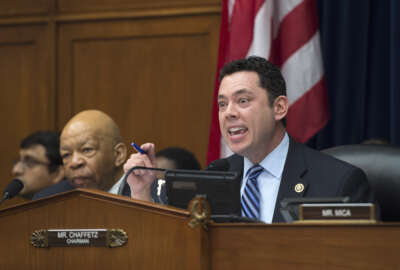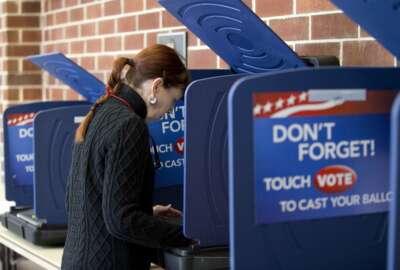
The pay ‘gap’: Grand Canyon or Rock Creek?
Many think there is a gap between federal and private sector pay. Senior Correspondent Mike Causey says the problem is that each side thinks it's on the losing ...
When it comes to federal vs. private sector pay, many people on both sides agree there is a wide gap. That one is paid better — in some cases much, much more — than the other. What they don’t agree on is who’s getting the short end of the stick.
Many nonfederal workers think the civil service guarantees a 30-year ride on the ultimate gravy train.
Many feds believe that private sector work, especially as a government contractor, means big bucks and eye-popping bonuses.
Both sides have selected stats proving beyond a doubt that they are correct.
A recent column said it’s hard to compare federal pay to the private sector because eight of the nation’s largest employers are either retail (like Wal-Mart) or fast-food. And there is the question of using or excluding “total compensation”. That’s the value of fringe benefits — vacation, sick leave, 401k plans and the pension package — plus salaries. Lots of people commented. Here’s what a couple of long-time former feds said about the federal vs. private sector pay gap:
“Interesting article, but I think there is a bit of a misconception on the actual benefits. As a retired fed employee, if you looked at my last year’s salary, you might think I was overpaid because of my over 500 hours of vacation time payout which was added to my total salary. That was time earned over 27 years of service. I also accrued about a year of sick leave time, which added to my overall retirement.
“The part not being addressed is that if I took all the vacation time and sick leave allotted to me, the organization would have been without my services. This might have resulted in either work delayed or additional expenses incurred to pay another employee to cover my taking the earned time off. True, feds get the opportunity to accrue vacation and sick leave time up to certain limits and some private sector companies do this as well.
“One of the selling points the fed points to is to save your leave for that possible catastrophic illness! Federal employees also donate leave to others who are out of leave time yet need a salary. The unfortunate issue here is the donation must be vacation time — I’d like to see it changed to allow donations of sick leave, which would have little impact on my retirement but I think I turned back 11 days to the fed that could have gone into the illness support pool.
“If you were to compare only salary and benefit packages, I think the fed employees lose — in the private sector, you have stock options, company cars, bonus programs, some have tuition reimbursement, etc. All of this of course depends on the level you work at and I think you referenced that quite well.
“I went back to work for a private company where I have vacation, 401k, medical benefits, life insurance — all of which I had at the fed organization.
“Each person makes their own choice of where to work and why — fed employment offers a level of security that the private sector does not — there is a salary difference for that “perceived security”. Some want the salary up front, others want longevity over time, but I think everyone wants growth and opportunity — often career movement in the fed is limited by those in-front of you, but that’s getting better.
“Just a few thoughts” —Chuck McGann
“One additional thought on making pay comparisons. One of the reasons that adding benefits makes feds come out on top is that all feds get (virtually) the same benefit package. From janitor to senator, everyone gets FEHB, FERS, TSP, etc. No special deals for the powerful (well, maybe judges with full pay for life, but that’s in the Constitution), but every working stiff (after contributing his or her share for each benefit) gets health coverage for the family and retirement for the future. A lot of private employers reserve this treatment for those at the top, so of course the feds will be more expensive by comparison. But it does happen to be the right thing to do! ” — Mr. T
Nearly Useless Factoid
By Michael O’Connell
To conserve energy when food is hard to find, a hummingbird can enter a nightly state of torpor, slowing its metabolism to 1/15th of its usual rate.
Source: Wikipedia
Copyright © 2024 Federal News Network. All rights reserved. This website is not intended for users located within the European Economic Area.
Mike Causey is senior correspondent for Federal News Network and writes his daily Federal Report column on federal employees’ pay, benefits and retirement.
Follow @mcauseyWFED





